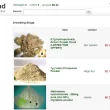Silk Road Marketplace, a notorious dark web platform that captured the attention of the tech and security communities. In this blog, we’ll take you on a journey deep into the shadows of the online black market, where anonymity, illegal trade, and cutting-edge technology converge.
Silk Road, often called the “Amazon of illegal goods,” revolutionized online illicit transactions. The mysterious Dread Pirate Roberts started the platform in 2011, offering a safe place to trade drugs, fake documents, hacking tools, and other banned items.
Let us guide you through the dark side of the internet’s black market, where anonymity, illegal trade, and cutting-edge technology mix.
The Rise of Silk Road: Marketplace Overview
Silk Road Marketplace is a dark web platform developed by Ross Ulbricht in 2011. It was officially developed under the project “Dread Pirate Roberts”. The platform quickly gained popularity as the next anonymous platform for users to engage in buying and selling unethical items such as drugs.
The primary means of the transaction was Bitcoin, a cryptocurrency that provides privacy features, which made it challenging for authorities to identify and track users. However, the FBI captured Ulbrich and shut down the Silk Road Marketplace in 2013. That was their significant victory against online cybercrime.
Silk Road profoundly impacted the perception of cryptocurrencies, as it linked Bitcoin with illegal transactions and cast doubt over the legitimacy of digital currencies. Silk Road’s legacy reminds us of the complex interplay between technology, crime, and the changing landscape of the Internet.
The vision of its founder, Ross Ulbricht
At the core of the Silk Road marketplace was the visionary mind of its founder, Ross Ulbricht. An amateur programmer and entrepreneur, Ulbricht held strong libertarian beliefs that influenced his creation of a platform where users could buy and sell anonymously without government intervention or central bank oversight.

Ulbricht firmly believed in free market exchange, advocating for individuals’ rights to offer goods and services without restrictions. He saw drug use as a personal choice and envisioned legalizing drugs to ensure better quality and protect users.
In 2011, Ulbricht brought his vision to life with the launch of the Silk Road Marketplace. Initially, he started by selling psychedelic mushrooms that he cultivated himself. The name “Silk Road” was inspired by the historic trade route from Europe to Asia, connecting civilizations and fostering cultural exchange.
The marketplace gained rapid traction, attracting over a thousand registered users within its first two months. Its popularity surged even further when an article titled “The Underground Website Where You Can Buy Any Drug Imaginable” was published by Gawker, a prominent online publication.
According to some research, the drug rate dealing was approximately 70% of the site’s overall transactions.
The Silk Road marketplace had several drugs, including heroin, cocaine, and marijuana.
However, cocaine is considered to be the most prominent. The closure marked sale on site was estimated at approximately $46 Million for only marijuana, $8.9 in heroin and $17.4 Million in cocaine sales. All these sales are terrifying, which is very surprising in the history of the dark web.
Tor network
Ulbricht utilized the Tor network to operate the Silk Road while maintaining user anonymity. Primarily established by the U.S. Navy for secure communication,
Tor is an open-source privacy network that employs onion routing. It encrypts messages over multiple layers, making tracking them back to the sender difficult. By routing web traffic through intermediary servers, Tor obscures users’ I.P. addresses and locations, safeguarding their privacy.
Tor network is legally and freely available in the United States. However, it has been linked to licit and illicit activities because of its ability to preserve online anonymity.
Ross Ulbricht’s vision and the Tor network’s technological prowess laid the foundation for the Silk Road marketplace. It offered a unique platform where individuals could free trade while preserving their privacy.
Activities and Products on Silk Road
This marketplace is where users can discreetly buy and sell a wide range of illicit substances, including narcotics, stimulants, hallucinogens, and prescription medications. The platform’s anonymity and using Bitcoin for transactions made it an attractive hub for drug dealers and buyers seeking to evade law enforcement.
However, the illegal drug trade was not the only illicit activity on Silk Road. The marketplace also facilitated various other unlawful endeavours. For instance, users could access listings for counterfeit goods, including counterfeit luxury items, fake passports, counterfeit currency, and forged documents.
The availability of such counterfeit products raised concerns about the proliferation of fraudulent activities and the potential harm caused to consumers.
In addition to counterfeit goods, Silk Road online black market became a hub for the provision of fraudulent services.
Users could find listings for hacking services, stolen financial information, identity theft tools, and even hitmen for hire. The marketplace attracted individuals with nefarious intentions, exploiting the anonymity and unregulated nature of the platform to carry out illegal activities.
Role of cryptocurrency
Traditional online marketplaces typically rely on credit card transactions, which can be traced back to individuals, making it easier for law enforcement agencies to monitor illicit activities. Ulbricht understood that using credit cards on Silk Road Marketplace would undermine the marketplace’s anonymity and expose users to potential government surveillance.
In contrast, Bitcoin offered privacy and pseudonymity aligned with Silk Road’s objectives. Users only needed to provide a physical address to receive their purchased products, often using anonymous P.O. boxes. This limited the information users had to disclose, making it more challenging for authorities to identify and track individuals involved in illegal transactions.
Silk Road online black market established a unique payment system that relied on an online “bank” where users held Bitcoin-funded accounts. When a buyer made a purchase, the funds were transferred to an escrow account controlled by Silk Road, ensuring the safety of the transaction.
The funds remained in escrow until the buyer confirmed the product’s receipt and the transaction’s satisfaction. The funds were transferred to the vendor’s account at that point. Silk Road operated on a commission-based model, taking a percentage (8% to 15%) of each sale as a fee.
Cryptocurrency, particularly Bitcoin, presented significant challenges for law enforcement agencies trying to track activities on Silk Road dark web platform. Bitcoin’s decentralized nature and cryptographic protocols made it challenging to trace and relate transactions to specific individuals. The anonymity provided by Bitcoin allowed Silk Road users to engage in illicit transactions with reduced fear of detection.
The use of cryptocurrency on Silk Road and its inherent challenges for law enforcement further highlighted the evolving nature of online criminal activities and the need for innovative strategies to address them effectively.
Law Enforcement’s Crackdown on Silk Road
The investigation into Silk Road, the dark web marketplace, was a collaborative effort by various U.S. agencies, including the FBI, DEA, and IRS. The breakthrough in the case came when an IRS investigator linked the username “altoid” used on Silk Road to a deleted post on another forum that contained an email address with Ross Ulbricht’s actual name.
In October 2013, at the San Francisco Public Library, federal agents captured Ulbricht, the genius behind Silk Road, and swiftly grabbed his laptop before any potential evidence could be erased.
As a result, Silk Road was shut down.
Ulbricht’s trial took place in 2014, resulting in his conviction on all charges and a life sentence in prison without parole.
The court considered that six individuals had fatally overdosed on drugs purchased from Silk Road, which likely influenced the severity of Ulbricht’s sentence. Additionally, there were 130 other arrests related to Silk Road, including high-profile drug seller Cornelius Sloop, who received a 10-year prison term.
The Mystery of the Missing Billions
In the aftermath of Silk Road’s shutdown, the DEA and Department of Justice launched an extensive investigation into the billions of dollars in Bitcoin stolen from the marketplace. Using a clever exploit, James Zhong tripped Silk Road’s withdrawal processing system, accumulating around 50,000 Bitcoins in multiple accounts. Zhong then concealed the ownership and control of these Bitcoins by moving them to various addresses.
Almost five years later, during a hard fork coin split, Zhong converted a portion of the stolen Bitcoin into Bitcoin Cash and back into Bitcoin, totalling 3,500. He then used an exchange to convert the stolen Bitcoin into dollars, enabling investigators to trace the transaction.
After a decade-long investigation, law enforcement received a crucial tip when James Zhong, unaware of the ongoing investigation, reported a burglary in Athens, Georgia, where he claimed a substantial amount of Bitcoin was stolen. This prompted the attention of the IRS, leading to a raid on Zhong’s residence.
During the raid, authorities discovered Bitcoin hidden in a “single-board computer” in a popcorn tin in Zhong’s bathroom. They also found a significant sum of cash and bars of gold and silver in a floor safe. In November 2021, a law enforcement operation seized over 50,676 Bitcoin worth an astonishing $3.36 billion.
Conclusion
The Silk Road Marketplace was a notorious dark web platform for facilitating illegal activities. Its closure was seen as a victory for law enforcement, but the dark web continues to evolve, giving rise to new marketplaces and criminal endeavours. The Silk Road symbolized the challenges authorities face in combating cybercrime, enabling the trade of drugs, counterfeit goods, hacking tools, and more through anonymous cryptocurrency transactions. However, its takedown demonstrated the power of collaboration between international law enforcement agencies.
The dark web poses ongoing challenges for law enforcement and individuals concerned about cybersecurity, emphasizing the need for solid digital security measures and cybersecurity education. In conclusion, while the Silk Road’s demise was significant, it reminds us to remain vigilant and prioritize cybersecurity in the ever-changing digital landscape.




